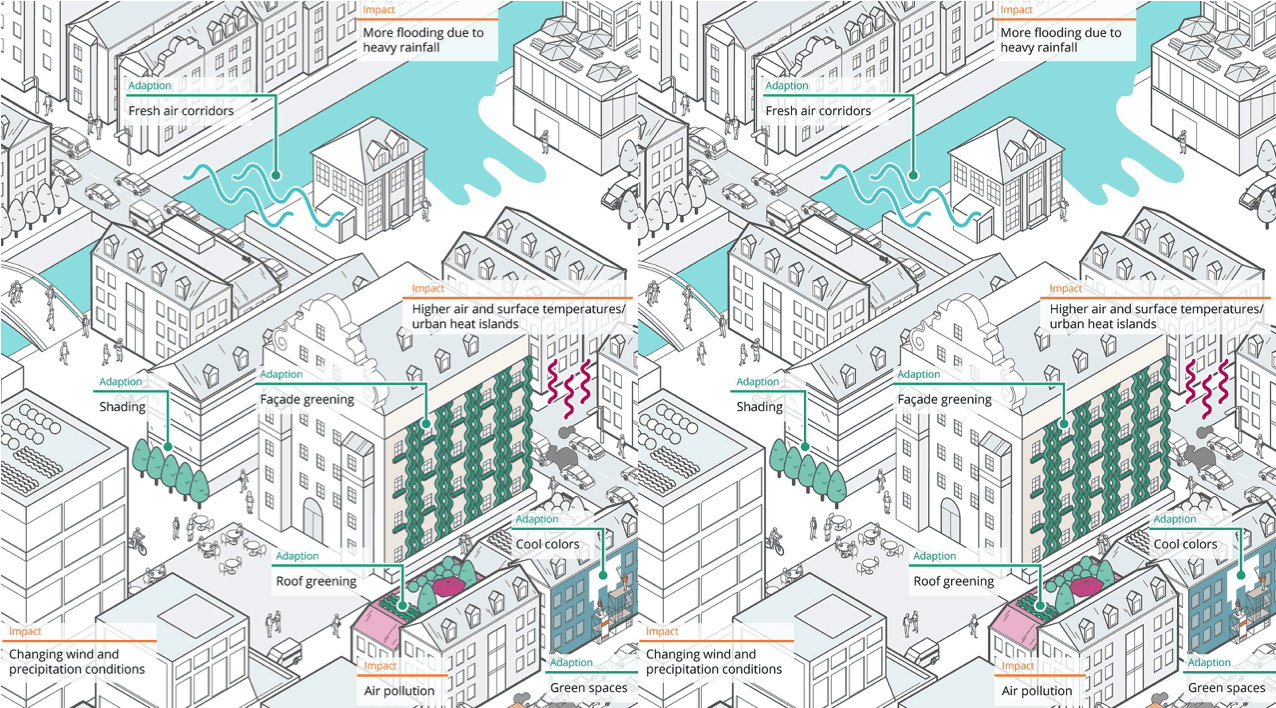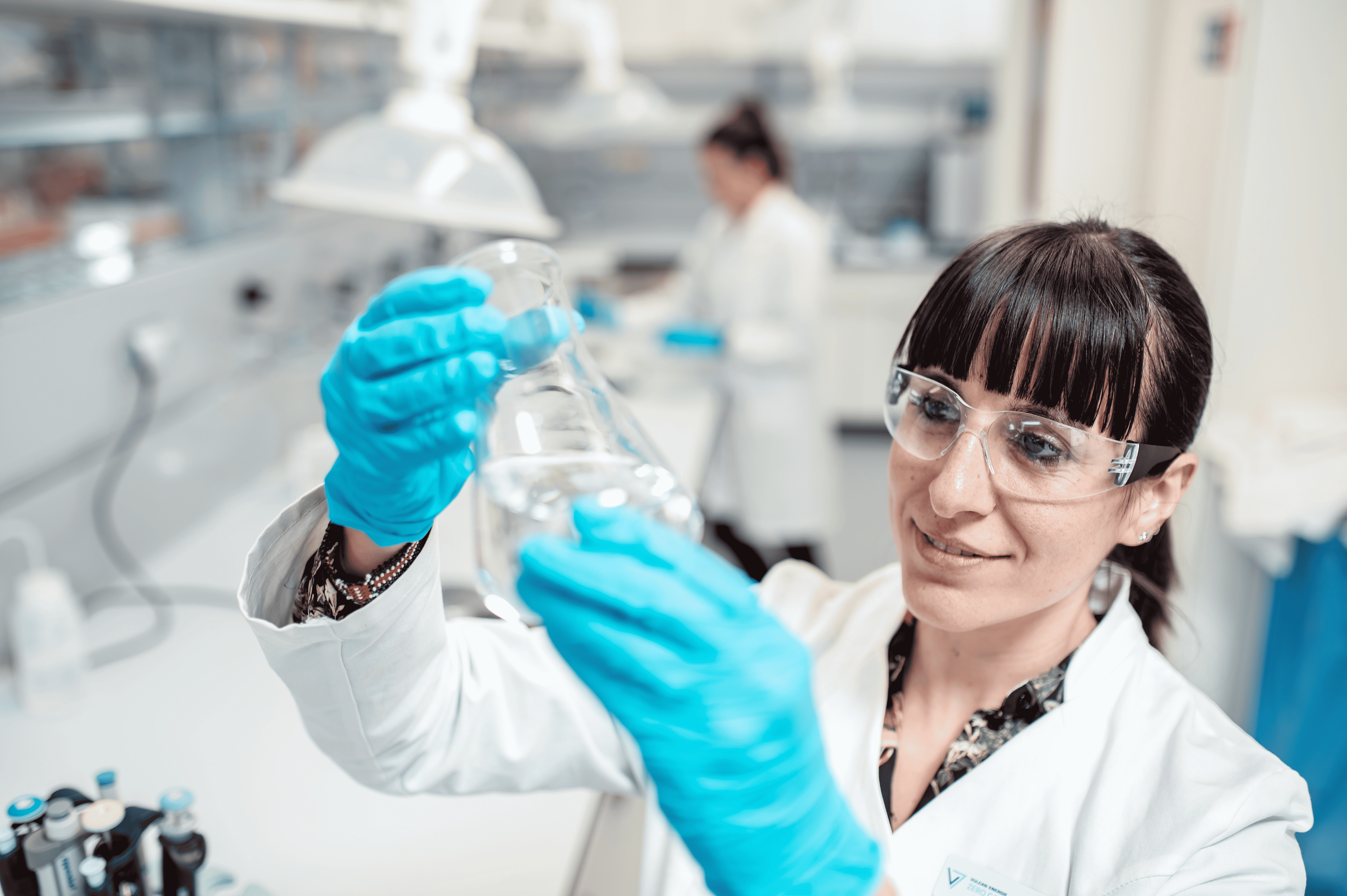
Let’s be honest. Who knew what a PCR test was at the beginning of last year? But after a year and a half of the corona pandemic, these tests are now the talk of the town. While taking a sample for the test only takes two to three minutes, the required polymerase chain reaction (PCR) takes around four to five hours in the laboratory. Researchers at the Fraunhofer Institute for Ceramic Technologies and Systems IKTS have now found a way to significantly speed up this process in the laboratory.
“With this solution, we want to further accelerate PCR procedures that are important for the health of the population, including after the pandemic, and also make them even more readily available,” says IKTS director Prof. Alexander Michaelis. This method requires rapid temperature changes for the samples, made possible by a combination of ceramic 3D printing and applied electronics.
Alternating temperatures
PCR tests are used to amplify and enrich the genetic material of the pathogen – in this case, the SARS-CoV-2 virus – from nasal and throat mucus samples to obtain a more accurate result than rapid tests. With the PCR test, even the smallest amounts of coronavirus can be clearly detected. To do this, the samples must undergo a kind of “temperature cycling” in the laboratory during which the reaction vessels are alternately heated up to 96 degrees Celsius and then cooled down again to 55 degrees or less. These processes must be repeated about 30 times according to a precisely defined plan. All in all, this takes about five to six hours. This is the only way the enriching chain reaction can keep producing new copies of the genetic material.

Innovative “μPCR” modules from Fraunhofer IKTS help to significantly speed up corona lab tests. © Fraunhofer IKTS
But now Dr. Lars Rebenklau, an electrical engineer, and Dr. Uwe Scheithauer, a 3D printing expert from IKS, have developed a promising faster alternative together with their colleagues. They use additive manufacturing processes to produce μPCR modules. To do this, they first use industrial 3D printers to produce a ceramic sleeve with integrated cooling channels. “With additive manufacturing, producing even these complex shapes is no longer a problem. This would be impossible or very complex and expensive using conventional methods,” said Scheithauer.
The resulting “green body” is then fired at over 1,000 degrees to form a solid and very durable ceramic. Metallic spiral patterns are then printed onto this base body and fired at 850 degrees. They later serve as radiators. The compact μPCR modules are completed by electrical connections and coolant hoses.
“Highly durable, small but powerful PCR modules”
Currently, these units have a diameter of about 15 millimeters and a length of about 45 millimeters and are used for both heating and cooling the samples during the polymerase chain reaction. The heating electronics bring the sample vessels to the desired temperatures within a few seconds. Gaseous nitrogen flowing through the integrated 3D cooling channels then cools them down again just as quickly. In addition, the aggregates can be coupled to form larger matrix assemblies to analyze many samples at once, say the researchers. The IKTS scientists believe that such μPCR-based systems can further accelerate PCR analyses in the future if they are developed to production readiness.
“The combination of additive manufacturing, thick-film technology and other ceramic technologies along with a simple construction results in highly durable, small but powerful PCR modules,” explains Dr. Lars Rebenklau. Automated large-scale production is also possible, while more powerful coolants and further improvements to the printed electronics could further accelerate the PCR process. At the moment, the scientists are working on making the developed modules even smaller to further reduce the temperature sequences.
In addition, such powerful and fast ceramic heaters are not only suitable for PCR testing, but also for other applications where high temperatures or harsh conditions prevail. As examples, the researchers cite other medical devices or applications in process technology.
Also interesting:
Results in twelve minutes – New rapid test to detect coronavirus antibodies
German researchers develop new corona antibody test kit for home use








